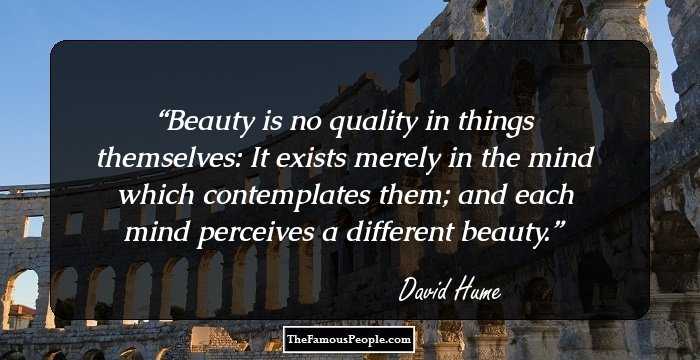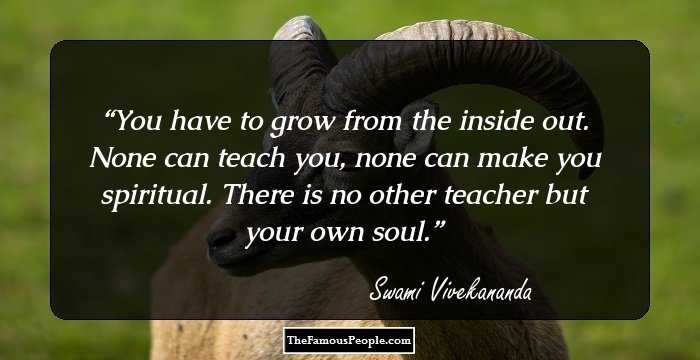
Science is the great antidote to the poison of enthusiasm and superstition.

The first thing you have to know is yourself. A man who knows himself can step outside himself and watch his own reactions like an observer.
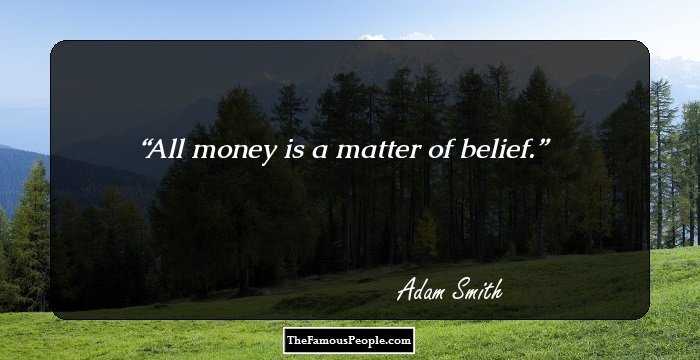
All money is a matter of belief.
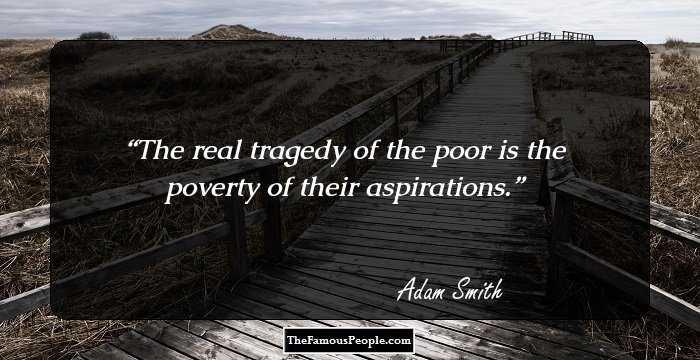
The real tragedy of the poor is the poverty of their aspirations.
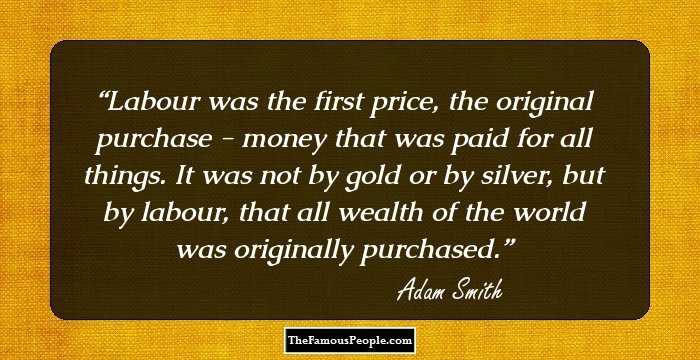
Labour was the first price, the original purchase - money that was paid for all things. It was not by gold or by silver, but by labour, that all wealth of the world was originally purchased.
It is not by augmenting the capital of the country, but by rendering a greater part of that capital active and productive than would otherwise be so, that the most judicious operations of banking can increase the industry of the country.
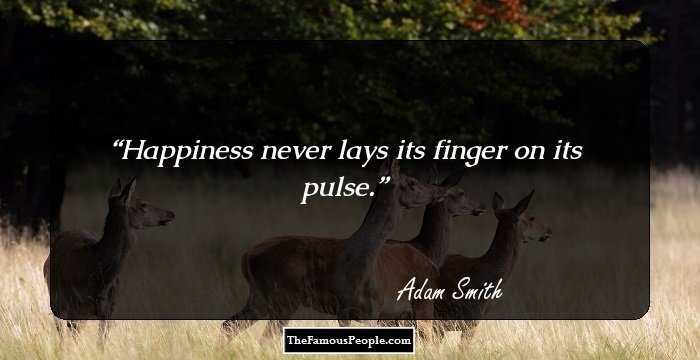
Happiness never lays its finger on its pulse.
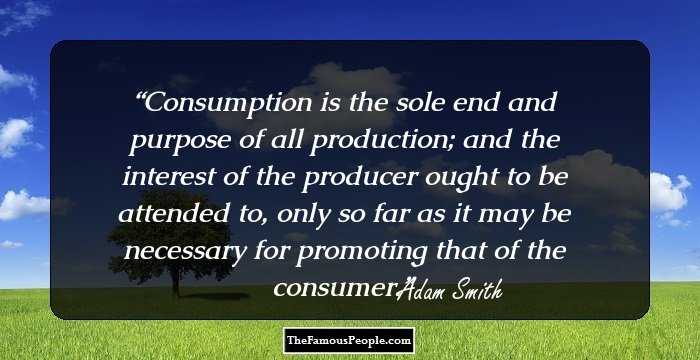
Consumption is the sole end and purpose of all production; and the interest of the producer ought to be attended to, only so far as it may be necessary for promoting that of the consumer.
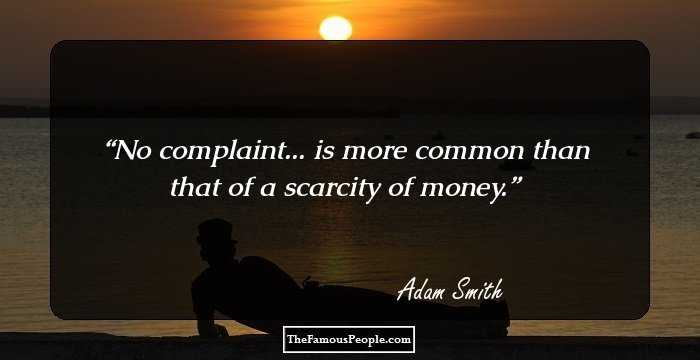
No complaint... is more common than that of a scarcity of money.

What can be added to the happiness of a man who is in health, out of debt, and has a clear conscience?

Humanity is the virtue of a woman, generosity that of a man.
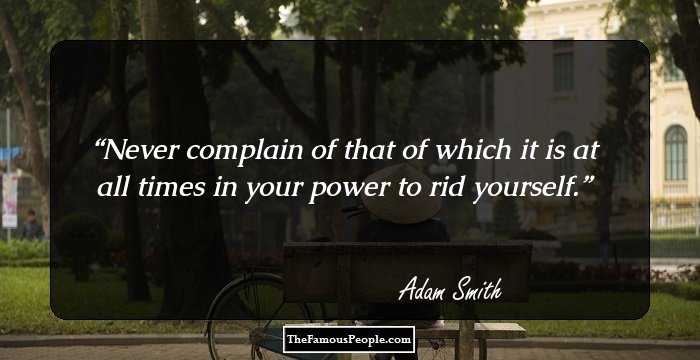
Never complain of that of which it is at all times in your power to rid yourself.
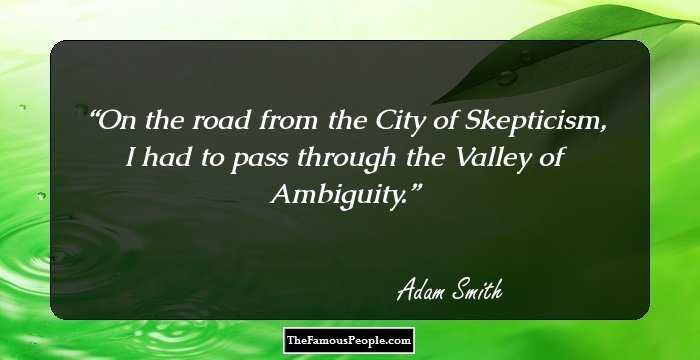
On the road from the City of Skepticism, I had to pass through the Valley of Ambiguity.
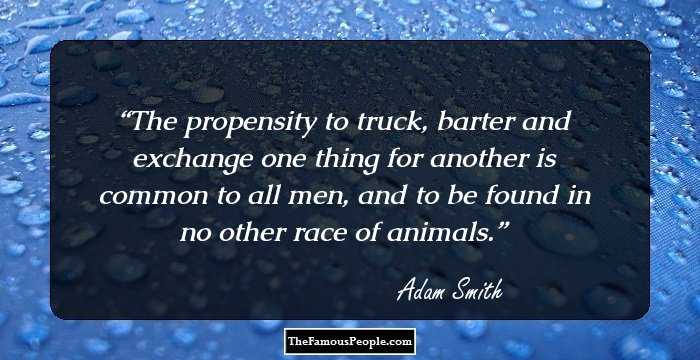
The propensity to truck, barter and exchange one thing for another is common to all men, and to be found in no other race of animals.

As soon as the land of any country has all become private property, the landlords, like all other men, love to reap where they never sowed, and demand a rent even for its natural produce.

With the greater part of rich people, the chief enjoyment of riches consists in the parade of riches.

Adventure upon all the tickets in the lottery, and you lose for certain; and the greater the number of your tickets the nearer your approach to this certainty.
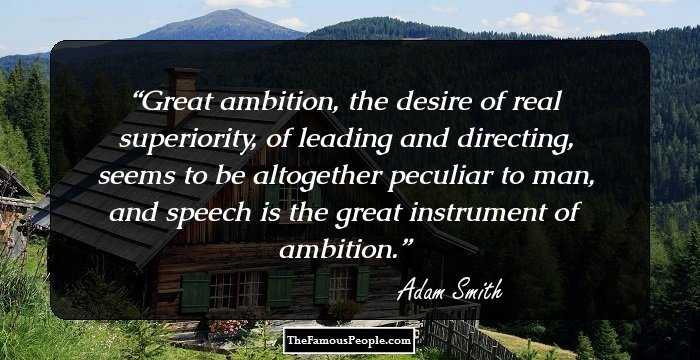
Great ambition, the desire of real superiority, of leading and directing, seems to be altogether peculiar to man, and speech is the great instrument of ambition.
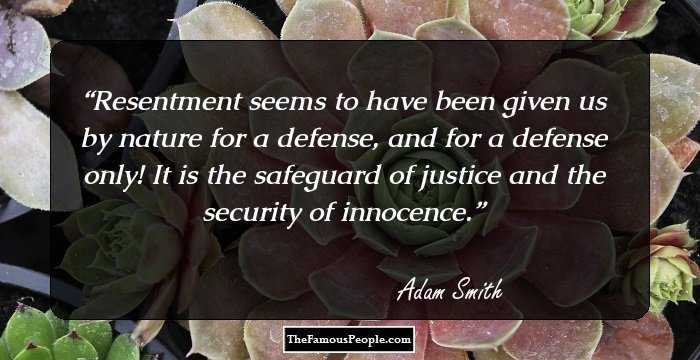
Resentment seems to have been given us by nature for a defense, and for a defense only! It is the safeguard of justice and the security of innocence.
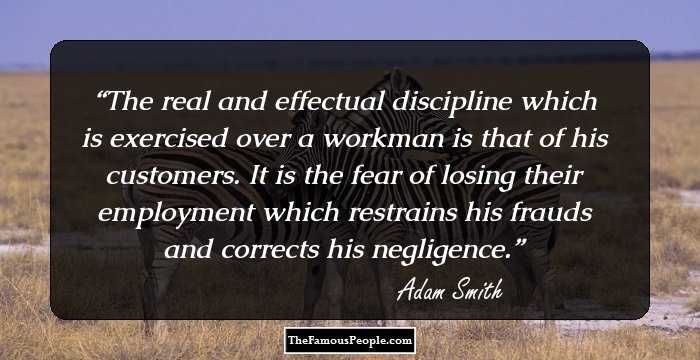
The real and effectual discipline which is exercised over a workman is that of his customers. It is the fear of losing their employment which restrains his frauds and corrects his negligence.

I have never known much good done by those who affected to trade for the public good.
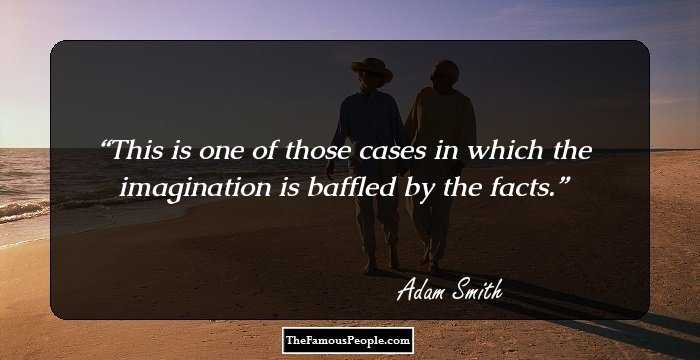
This is one of those cases in which the imagination is baffled by the facts.
Little else is requisite to carry a state to the highest degree of opulence from the lowest barbarism but peace, easy taxes, and a tolerable administration of justice: all the rest being brought about by the natural course of things.
Poor David Hume is dying fast, but with more real cheerfulness and good humor and with more real resignation to the necessary course of things, than any whining Christian ever dyed with pretended resignation to the will of God.
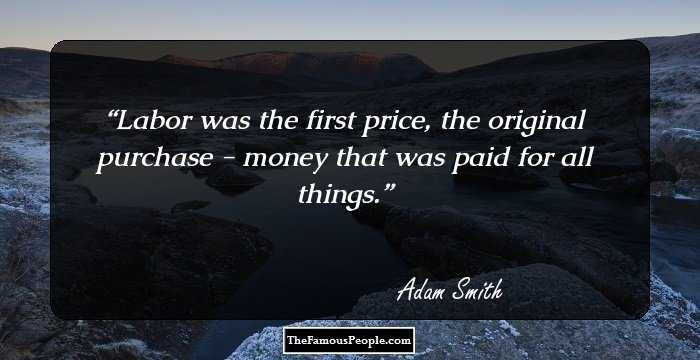
Labor was the first price, the original purchase - money that was paid for all things.
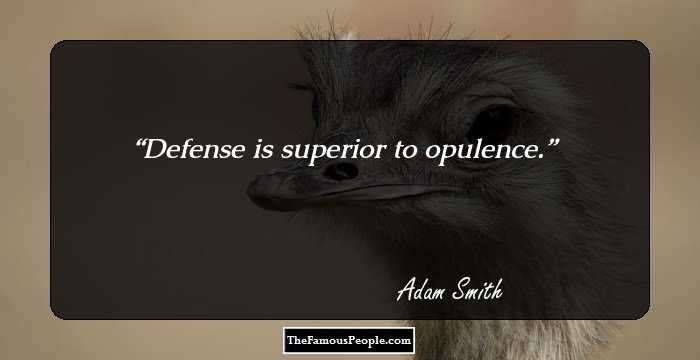
Defense is superior to opulence.
The man of system...is apt to be very wise in his own conceit; and is often so enamoured with the supposed beauty of his own ideal plan of government, that he cannot suffer the smallest deviation from any part of it... He seems to imagine that he can arrange the different members of a great society with as much ease as the hand arranges the different pieces upon a chess-board. He does not consider that in the great chess-board of human society, every single piece has a principle of motion of its own, altogether different from that which the legislature might choose to impress upon it.
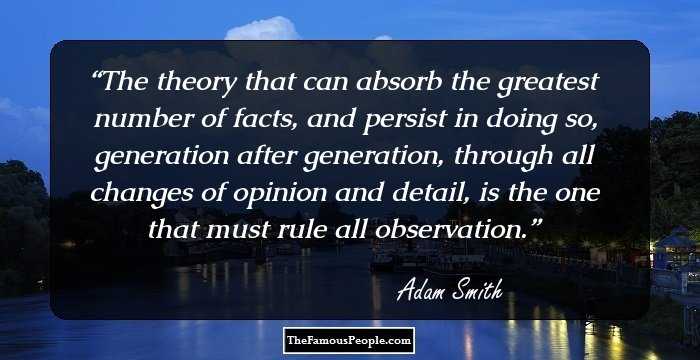
The theory that can absorb the greatest number of facts, and persist in doing so, generation after generation, through all changes of opinion and detail, is the one that must rule all observation.
A criminal is a person with predatory instincts who has not sufficient capital to form a corporation.Most government is by the rich for the rich. Government comprises a large part of the organized injustice in any society, ancient or modern.Civil government, insofar as it is instituted for the security of property, is in reality instituted for the defence of the rich against the poor, and for the defence of those who have property against those who have none.
The greatest improvement in the productive powers of labour, and the greater part of the skill, dexterity, and judgment with which it is anywhere directed, or applied, seem to have been the effects of the division of labour.


